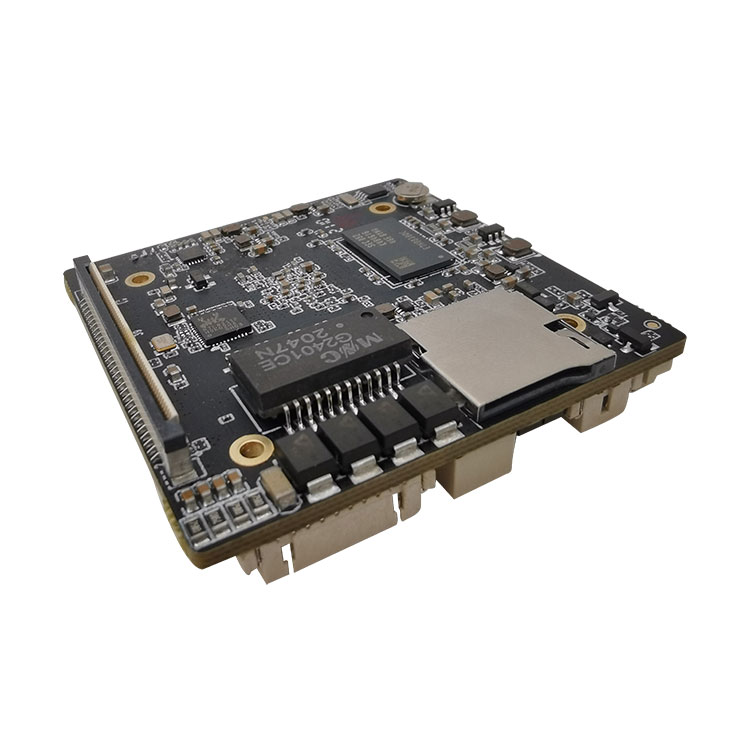What is an IPC module?
2024-06-15
An IPC module, or Inter-Process Communication module, is a software or hardware component that enables different processes within a computer system to communicate with each other. This communication is crucial in a multitasking environment where multiple processes need to exchange data and synchronize their actions to perform complex tasks efficiently. IPC modules can be found in various systems, including operating systems, embedded systems, and networked environments.

Key Features and Functions of IPC Modules
1. Data Exchange:
- Shared Memory: Allows multiple processes to access common memory space for high-speed data exchange.
- Message Passing: Processes send and receive messages through communication channels like message queues or pipes.
2. Synchronization:
- Semaphores: Used to manage access to shared resources by multiple processes to avoid conflicts and ensure data integrity.
- Mutexes: Ensure mutual exclusion, preventing multiple processes from accessing a resource simultaneously.
3. Remote Procedure Calls (RPCs):
- Function Invocation: Enable a process to execute a function or procedure in another process, often on a different machine, as if it were local.
4. Signals and Events:
- Event Notification: Processes can signal or notify other processes about specific events or changes in state, facilitating coordinated actions.
Types of IPC Mechanisms
1. Pipes:
- Anonymous Pipes: Allow unidirectional communication between parent and child processes.
- Named Pipes (FIFOs): Support bidirectional communication and can be used between unrelated processes.
2. Message Queues:
- FIFO Queues: Messages are stored in a queue and retrieved in the order they were sent.
- Priority Queues: Messages can have priorities, affecting the order of retrieval.
3. Shared Memory:
- Memory Segments: Processes share access to a memory segment, enabling fast data exchange.
- Memory Mapping: Maps a file or device into memory, allowing processes to access it as if it were part of their address space.
4. Sockets:
- Network Communication: Facilitate communication between processes over a network, using TCP/IP or other protocols.
5. Signals:
- Asynchronous Communication: Send simple notifications to processes, often used for interrupting or altering process behavior.
Applications of IPC Modules
1. Operating Systems:
- Kernel-Level IPC: Provides fundamental services for process communication and synchronization in operating systems like Unix, Linux, and Windows.
- User-Level IPC: Libraries and APIs that application developers use to implement IPC in their programs.
2. Embedded Systems:
- Microcontrollers: Facilitate communication between different components and sensors in embedded devices.
- Real-Time Systems: Ensure timely and predictable data exchange in systems with strict timing constraints.
3. Distributed Systems:
- Client-Server Communication: Enable communication between client and server processes in a distributed architecture.
- Cluster Computing: Coordinate tasks across multiple nodes in a computing cluster.
4. Software Development:
- Multithreaded Applications: Allow threads within an application to communicate and synchronize their actions.
- Microservices Architecture: Facilitate communication between microservices in a distributed application.
Advantages of IPC Modules
1. Efficiency:
- Fast Communication: Shared memory and other IPC mechanisms provide high-speed data exchange.
- Resource Management: Synchronization primitives like semaphores and mutexes help manage shared resources efficiently.
2. Scalability:
- Distributed Systems: IPC enables scalable communication across distributed systems and networks.
- Modularity: Facilitates the development of modular and maintainable software architectures.
3. Reliability:
- Data Integrity: Synchronization mechanisms ensure data consistency and integrity.
- Fault Tolerance: Support for robust error handling and recovery in communication processes.
IPC modules are integral to modern computing, enabling complex, multi-process applications to function smoothly and efficiently by facilitating communication and coordination between different processes.


